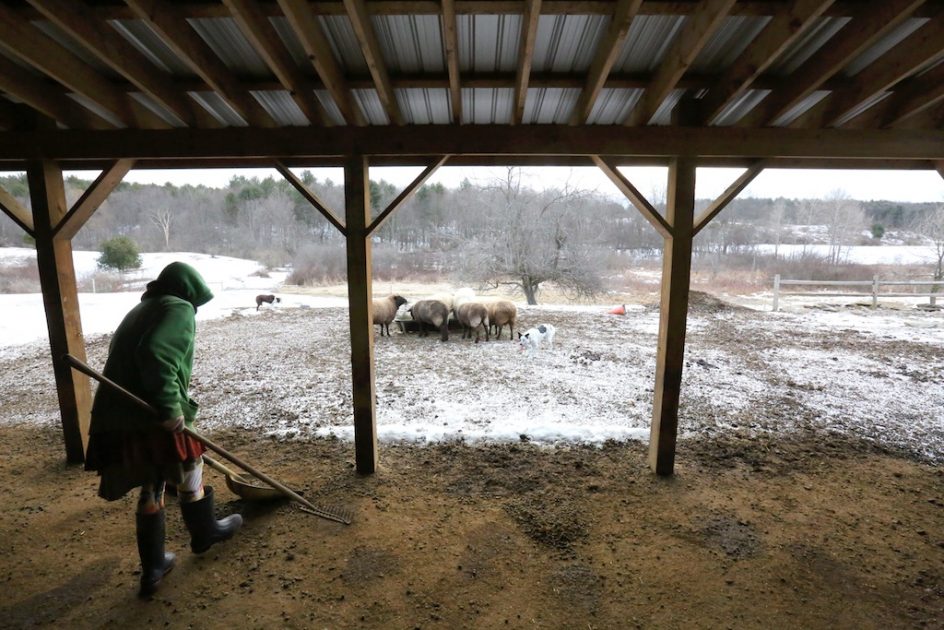
This afternoon, Maria and I are taking a drive with Camilia, an undocumented agricultural worker, some would call her an “illegal immigrant or alien.”
She has been in this country for nearly two decades, she has not had a day off in several years, she lives in a trailer with five other agricultural workers, she sends almost all of her money back to Mexico each month to support her family, she has never seen two of her grandchildren, not seen her daughters since she came here.
She is terrified now, every day, all day. wherever she goes, what ever she does.
Many people think this is only just, she deserves to be frightened, she has come her illegally. They believe she could leave the country or be taken out of the country.
Others – me – cringe at the earth of compassion and empathy that has poisoned our political system. This is her home now, she dreads losing it.
Camilia fears a knock on the door, lights in the night, shopping at Wal-Mart, where rumors have spread wildly through the agricultural workers of immigration agents hiding in parking lots when the workers come to buy their groceries. Camilia cleans eggs, shovels manure on pig and other farms, bottles milk, packages yoghurt, cleans houses, collects bottles and cans for recycling, washes cars.
She shops at night, buying small things, a few at a time at different places, carefully scanning parking lots for vans or SUV’s.
She works in the jobs that Americans don’t want and won’t take and that the agricultural community cannot operate without filling. She makes less than the minimum wage, has no benefits, and has little or no life beyond her work.
Since January, her life has been shaped by fear.
Of having a broken tail lights, of speeding, of driving with an expired registration, of having an accident, of being sick and having to go to an emergency room, of seeing her boyfriend and partner seized and deported, of using a credit card or writing a check. Of being hunted, arrested, seized and deported. She has no life now in Mexico, no place to live, no place to work, no means of support for her and her family.
Camilia is unwilling to go see a doctor or call the police in an emergency. Every day, she hears more stories of doors being smashed open in the night, fathers and mothers being separated from their families, hauled away in handcuffs in view of their children, sent far away with no ability to appeal or communicate.
Other than crossing the border, she has never broken the law and would be happy to pay taxes and live openly, if she could do so legally. Even the work visa process has become so fraught and complex it is almost impossible for most poor agricultural workers to apply for it or meet its requirements.
Camilia has no money for a lawyer. Maria and I have found an immigration lawyer who will see her. We are going today. His office is flooded with desperate agricultural workers who have, for years, kept the farms running around here and elsewhere. The farmers are terrified also, they cannot survive without these workers, many of whom have worked loyally and hard for them for years, but have no legal papers.
Our goal is to see if there is any way for Camilia to apply for a work visa – citizenship is impossible for the time being. There may be some way for agricultural workers to stay seasonally, but the procedure is grueling and expensive, the visas require enormous paperwork and high fees, they must be constantly renewed, and there are now severe limits as to how often they can be extended.
The lawyer says it is at least worth a visit, since people who have lawyers who will represented them have at least a chance of getting before an immigration judge before deportation. We don’t know how much this will all cost or how it will be paid for, but that is a concern down the road. The consultation is free.
He says there is not much he can do to help most of the people he sees.
I hope there is some hope for Camilia in this journey today, it is a hard road in front of her. But she agrees that the truth is better than uncertainty and delusion. She and her fellow workers never believed America would be this way. “Why do they hate Mexicans now?,” she asked. “We have no hope at home, no work. This is good place.”
For now the goal is for Camilia to understand her options and have access to help if she needs it. She is a good, gentle person, loving and hard-working, she has sacrificed almost every comfort in life for her family, and she is utterly bewildered at the sudden climate of fear and anger that surrounds her.
She is terrified of the police and of anyone who is official. She worries she and her boyfriend will be separated. They love each other very much.
I keep telling her this is not the real America, but a temporary madness. I hope I am right. The farmers who work with her say they will support her if they can. They very much need and value her. I intend to write about her as she struggles with her life and fate, and follow her story.
As always, I will share it openly and authentically.

